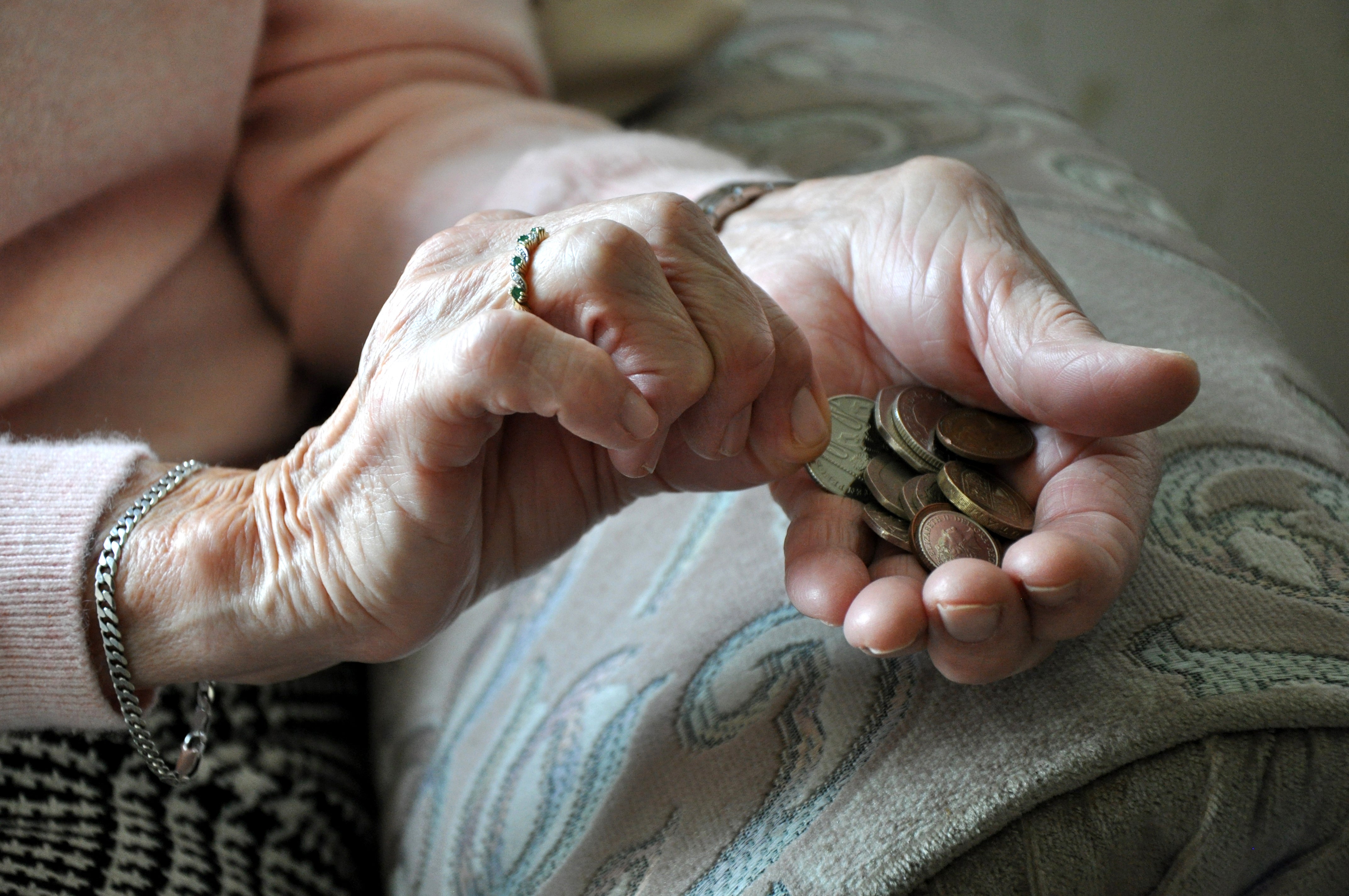State pension triple lock is unsustainable, says Treasury Committee chief
Mel Stride suggested that the wages measure used to calculate the triple lock should be temporarily suspended.

Your support helps us to tell the story
From reproductive rights to climate change to Big Tech, The Independent is on the ground when the story is developing. Whether it's investigating the financials of Elon Musk's pro-Trump PAC or producing our latest documentary, 'The A Word', which shines a light on the American women fighting for reproductive rights, we know how important it is to parse out the facts from the messaging.
At such a critical moment in US history, we need reporters on the ground. Your donation allows us to keep sending journalists to speak to both sides of the story.
The Independent is trusted by Americans across the entire political spectrum. And unlike many other quality news outlets, we choose not to lock Americans out of our reporting and analysis with paywalls. We believe quality journalism should be available to everyone, paid for by those who can afford it.
Your support makes all the difference.The state pension triple lock is unsustainable in its current form, according to the chairman of the Treasury Committee
Mel Stride suggested that the wages measure used to calculate the triple lock should be temporarily suspended – meaning it would be replaced with a double lock.
Reports suggest that a decision to temporarily introduce a double lock could be announced imminently.
A potential almost double-digit percentage rise is unrealistic and unfair, with knock-on effects for the public finances
The pensions promise guarantees that the state pension will increase in line with inflation, earnings or 2.5%, whichever is higher.
But distortions to wages during the coronavirus crisis could mean pensioners receive a rise of as much as 8% – an extra £3 billion – while many workers have been dealing with job losses, salary cuts and pay freezes in the tough economy.
Mr Stride said: “Over the last decade, the pensions triple lock has successfully protected the incomes of older people, who often have limited opportunities to increase their earnings.
“However, the triple lock is unsustainable in its current form. A potential almost double-digit percentage rise is unrealistic and unfair, with knock-on effects for the public finances.
“Given that average wage levels have been skewed by the unprecedented events of the past 18 months, the Chancellor should temporarily suspend the wages element of the lock.
“This is a sensible approach which will aid our recovery from the pandemic.”
Final decisions on the uprating policy for pensions and welfare benefits are taken by the Work and Pensions Secretary, supported by the Treasury, through an annual uprating review.
In a letter to the Committee, Chancellor Rishi Sunak said: “I am committed to ensuring that older people are able to live with the dignity and respect they deserve.
“The state pension is the foundation of state support for older people and, as a result of this Government’s policies, the full basic state pension in 2021/22 is over £2,050 a year higher in cash terms than in 2010.
“This is against a backdrop of wider state support for pensioners, including winter fuel payments, free eye tests and NHS prescriptions, and free bus passes.”
The letter continued: “The Government recognises that there are legitimate concerns about potentially artificially inflated earnings numbers feeding into the uprating of the state pension in ’22/23.
“However, the trajectory of average earnings remains uncertain, and it is not yet clear whether there will be a ‘spike’ as forecasted.
“We will continue to examine the data as it becomes clearer, and we will be guided by the principle that decisions on pensions must be fair to both pensioners and taxpayers.”
Ros Altmann a former pensions minister, urged the Government not to abandon the earnings measure within the triple lock, warning it could set a “dangerous precedent”.
She said: “To abandon the earnings link element of the state pension triple lock would be a potential disaster for pensions and pensioner poverty.”
Baroness Altmann continued: “Millions of pensioners, mostly women, have no private pension at all. Many never had the chance for an occupational pension and seem to have been ignored or overlooked in policy deliberations. This leaves them vulnerable to poverty.
“Denying them the earnings link will make them worse off relative to the rest of society.
“This would set a dangerous precedent that state pensions can be subjected to short-term revenue-raising raids: I hope the Government does not decide to do this, even supposedly on a ‘temporary’ basis, since it sets a dangerous precedent that state pension spending can be adjusted in the short term if a Chancellor wants to raise some revenue easily.”